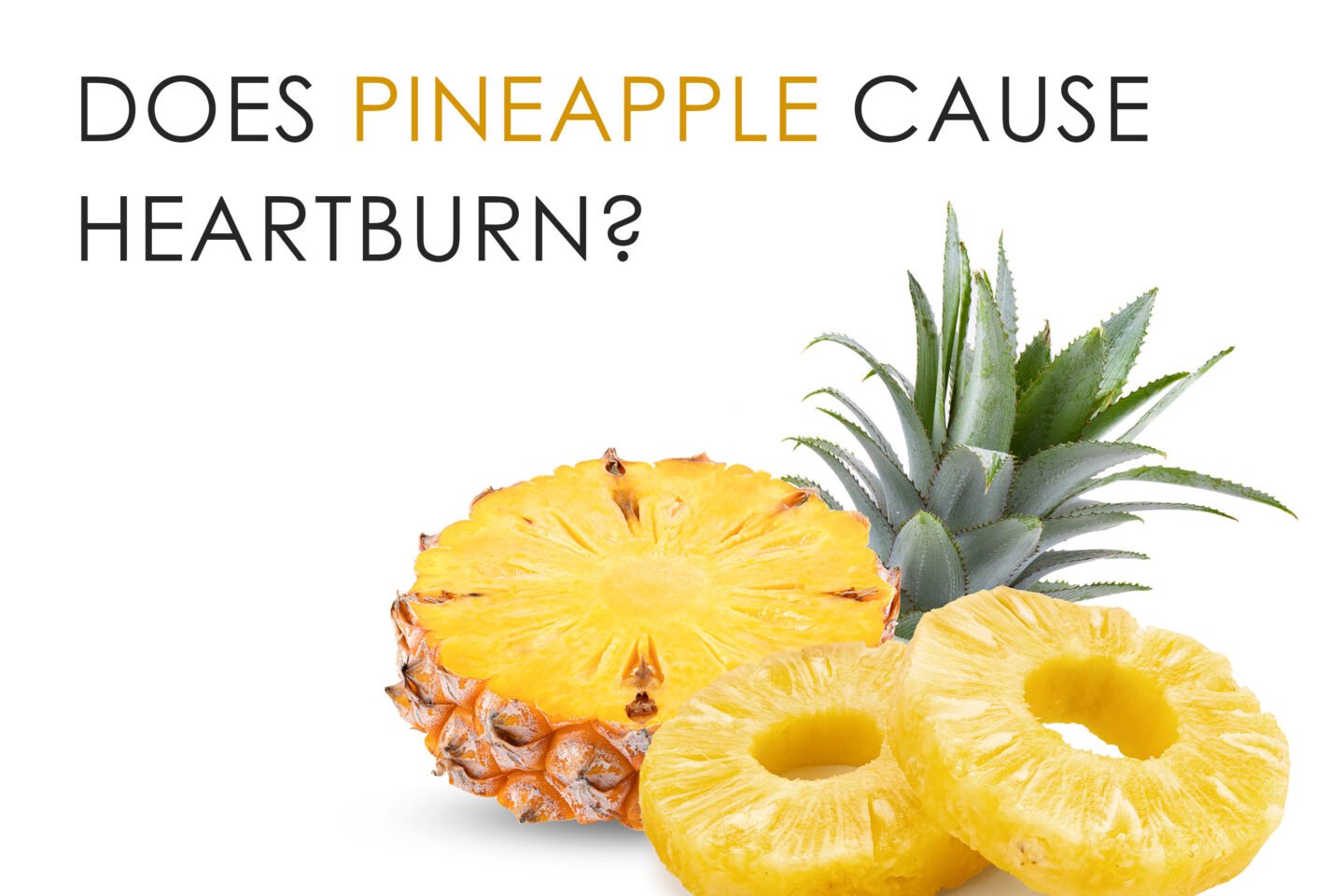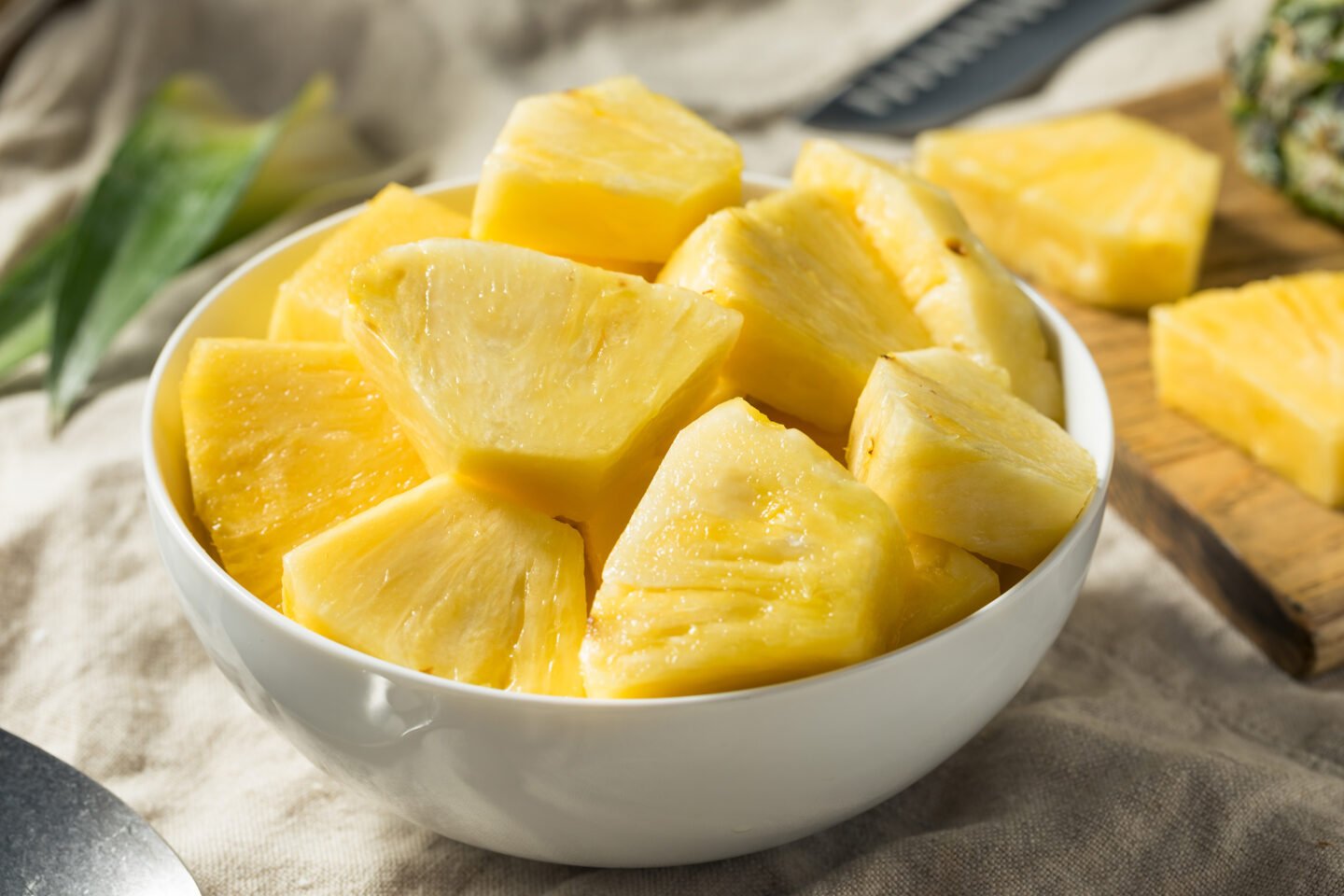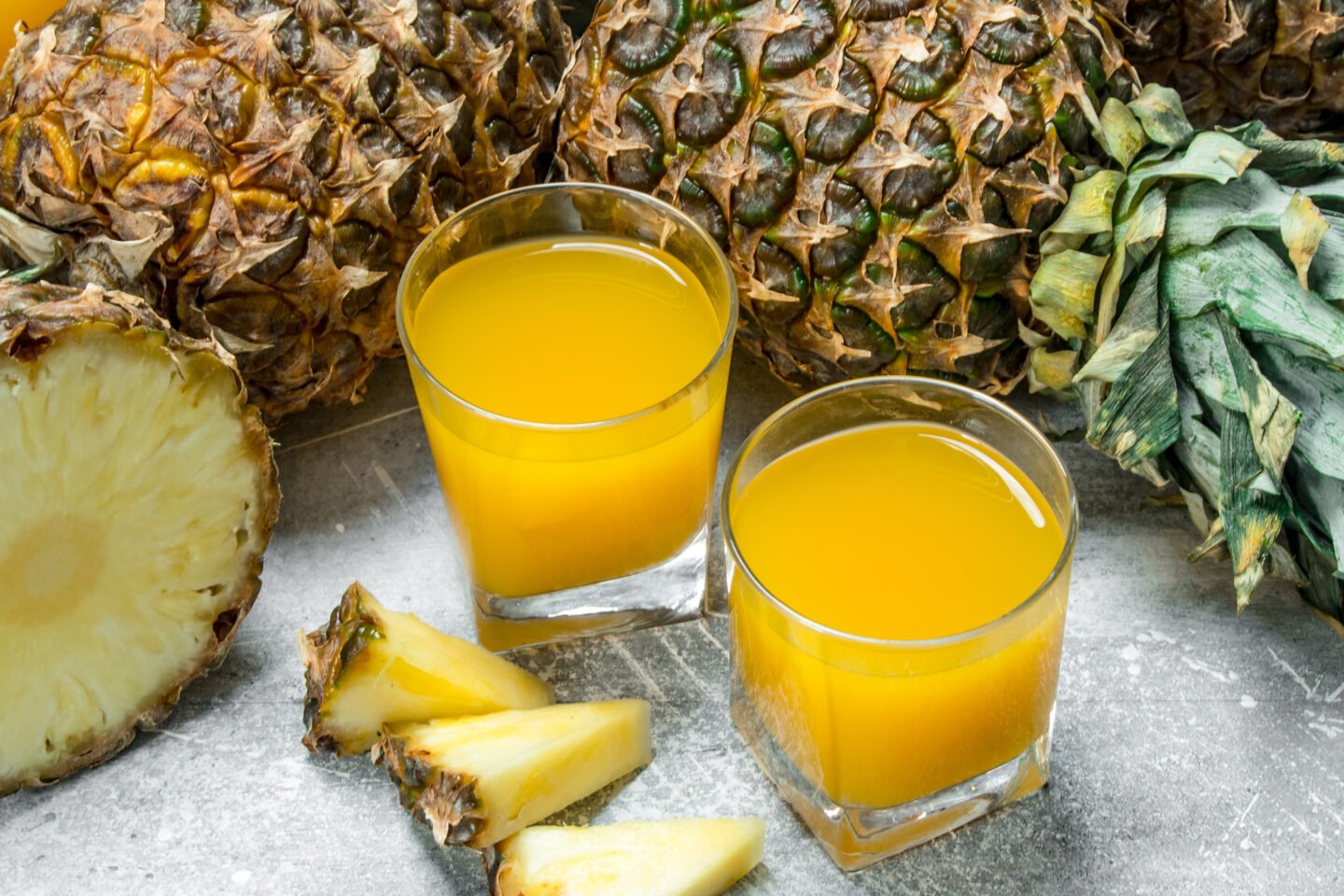Pineapple is a sweet tropical fruit that is delicious on its own, as part of a salad, or on pizza. It's also highly nutritious and contains many antioxidants that benefit your health.

Many fruits are highly acidic, so heartburn sufferers must either limit their intake or avoid them entirely.
Can people suffering from acid reflux or GERD safely add pineapple to their meal plans?
Table of Contents
Does Pineapple Cause Heartburn?
Pineapple is acidic and acid-forming, so it is likely to cause heartburn in people sensitive to acidic foods.
However, it's highly nutritious and an excellent dietary addition if you can tolerate its acidity.
Don't know what to drink? Check out these articles: 20 Most and Least Acidic Juices and 20+ Alcoholic Drinks Ranked by Acidity Level
How Acidic Is Pineapple?
Pineapple has a pH of around 3.20–4.00 and is also acid-forming after ingestion.
Canned pineapple is similar, with a pH of around 3.35–4.10. It also has added sugar, which can trigger heartburn.
How Does Pineapple Cause Heartburn?
Pineapple tastes acidic, so it can irritate your esophagus and digestive tract, leading to inflammation. This can stimulate gastric acid production, leading to heartburn.
However, everyone reacts to acidic foods differently, and some on a low-acid diet may be able to tolerate pineapple more than others.
Can Pineapple Relieve Heartburn?

Pineapple contains bromelain, an enzyme that reduces stomach inflammation and stops excess gastric acid production. Some experts believe that moderate consumption of fresh pineapple may help control acid reflux symptoms.
A serving of pineapple contains 2.3 g of fiber, around 9% of the recommended daily intake. Fiber soaks up excess stomach acid and keeps you feeling full longer after eating, reducing your appetite.
Is Pineapple Good for You?
A serving of pineapple contains 100% of the recommended daily vitamin C intake. This vitamin helps your body produce and maintain cells and tissues.
It's also a potent antioxidant that flushes free radicals from your body, reducing oxidative stress and cellular damage and lowering your risk of cancer, diabetes, and heart disease.
Pineapple is an excellent source of manganese, which supports connective tissues, bones, blood clotting, and sex hormones. Manganese is also crucial to carbohydrate metabolism.
The bromelain in pineapple helps break down protein into amino acids, preventing indigestion. It's also anti-inflammatory, lowering your risk of some cancers and arthritis.
Studies show that bromelain is almost as effective at reducing joint inflammation as over-the-counter medications.
Is Pineapple Juice Bad for Heartburn?

Pineapple juice has a pH of around 3.30–3.50 and is more acid-forming than raw pineapple, so those with acid reflux or GERD should avoid it.
It's also high in sugar (a common heartburn trigger), with a glass containing 25 grams.
To reduce its sugar content, dilute it or make it at home.
Conclusion
Although nutritious, pineapple's acidity makes it unsuitable for many acid reflux and GERD sufferers.
However, it's an excellent addition to a healthy, balanced diet if you can tolerate its acidity.
Don't know what to drink? Check out these articles: 20 Most and Least Acidic Juices and 20+ Alcoholic Drinks Ranked by Acidity Level
Sources: FDA, Nutrition Data, and National Library of Medicine
